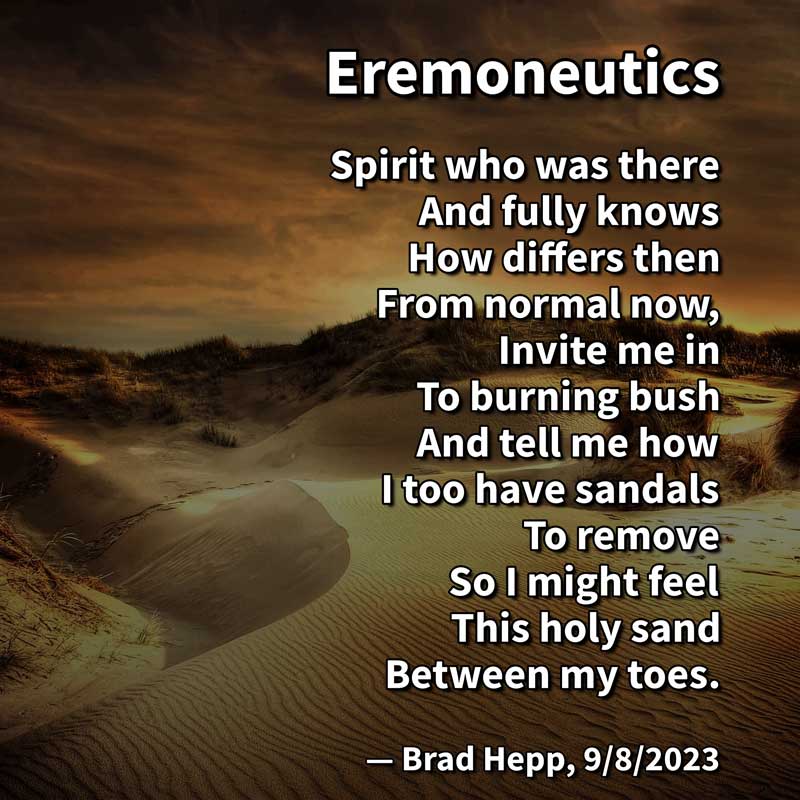(if you are viewing this via email, the website has a recording of this poem and commentary; click the title above)

Commentary
[This title is a combination of Greek erēmō (ἐρήμῳ, meaning wilderness, desert) and “hermeneutics” (the art and science of interpretation, especially of the Bible).]
These days I’m doing a lot of puzzling about the relationship of words and events in the lives of Moses, John the Baptist, and Jesus. Consider how the following words figure in the announcement of Moses’ and Jesus’ ministries: wilderness, voice, fire, sandal. Add in the fact that Jews were looking for a fulfillment of Moses’ promise that “The Lord your God will raise up for you a prophet like me from among you, from your brothers—it is to him you shall listen” (Deut. 18:15). They were bound to be looking for similarities between Moses and Jesus.
My 21st century brain wants to nail down logical, definite relationships between the men and their stories. But is that even appropriate? Is it possible that 1st century Jews were content with an unanalyzed, but harmonious gumbo of coincidence?
Please understand that the previous paragraph is not a denigration of biblical characters and writers. It’s simply that I want to really understand how they thought.
Bible students are taught “don’t make parables walk on all fours.” In other words, don’t assume that every aspect of a parable represents something in reality. But we’re tempted to ignore the advice. We get to the parable about the Rich Man and Lazarus, and we want to use that parable to map out Heaven, Hell, and eternal destiny. We need to be careful.
So, my last paragraph is a respectful pondering of the possibility that commonplace wisdom about interpreting parables may extend to interpreting other biblical forms.
(background image by Kordula Vahle on Pixabay)
#hermeneutics #johnthebaptist #moses #jesus #fire #burningbush #wilderness #voice
